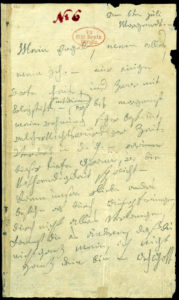Beethoven (1770-1827) officially turns 250 years young tomorrow, and we can only wish that we were able to gather together in celebration of the great man’s birthday. Thanks a lot, COVID-19, for pooping Beethoven’s party.
We persevere.
Today, I’m offering up something a bit different from the usual Dr. Bob Prescribes post. The avowed mission of Dr. Bob Prescribes is to recommend recordings and/or works and/or performers with which/whom we may not be familiar. To that end, in anticipation of Beethoven’s 250th birthday, I’ve been posting – since the summer of 2019 – about lesser known but deserving works by Beethoven and lesser known but deserving performances of works by Beethoven. Today’s Dr. Bob Prescribes deals with a lesser known and undeserving work by Beethoven, the cantata Der glorreiche Augenblick (“The Glorious Moment”), Op. 136. (It was composed in 1814 but not published until 1837, ten years after Beethoven’s death, which explains its high opus number.) Unsatisfying and overblown though the cantata is, the personal and historic circumstances behind its creation are fascinating. Thus, today’s post.

The Letter
Among the mountain of papers, letters, contracts, doodles, pink slips and such that Beethoven left behind after his death was a love letter, the length and content of which is unique among Beethoven’s extent correspondence. (To this day we do not know whether the letter is a draft, which was then copied out more legibly and sent, or whether it was never sent at all.) It’s a long letter, and it’s filled with spontaneity, passion, exaltation, confusion, and frankly conflicting emotions. Conflict and confusion aside, what the letter makes clear is that Beethoven – probably for the first and only time in his life – had fallen passionately in love with a woman who returned that passion and love.
The letter was written across the span of two days, July 6 and 7. There are two problems with this letter. There’s no year in its date (it only says July 6 and 7) and does it indicate to whom it is addressed. All we know is that over the course of the letter Beethoven refers to its recipient as his “Immortal Beloved.”
The speculation as to the identity of Beethoven’s “Immortal Beloved” has been going on for nearly 200 years.…
Continue reading, and see the “sort of” prescribed recording, only on Patreon!
Become a Patron!